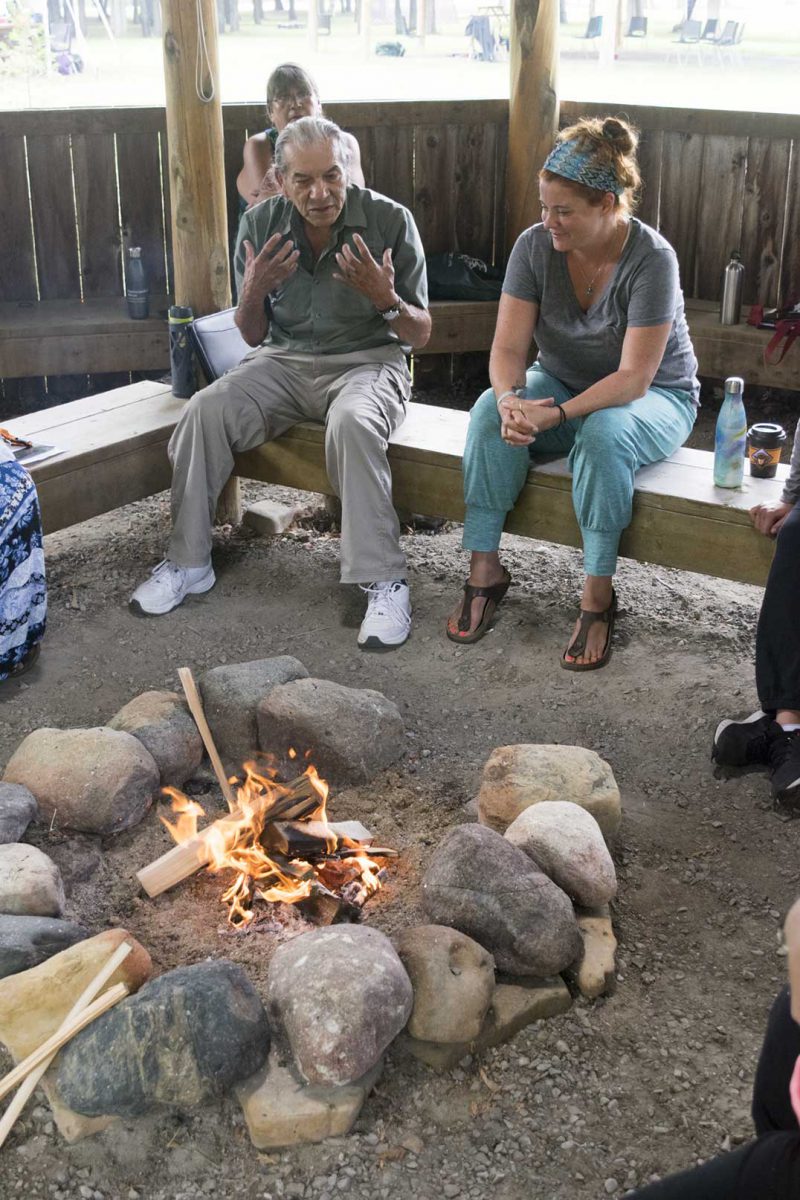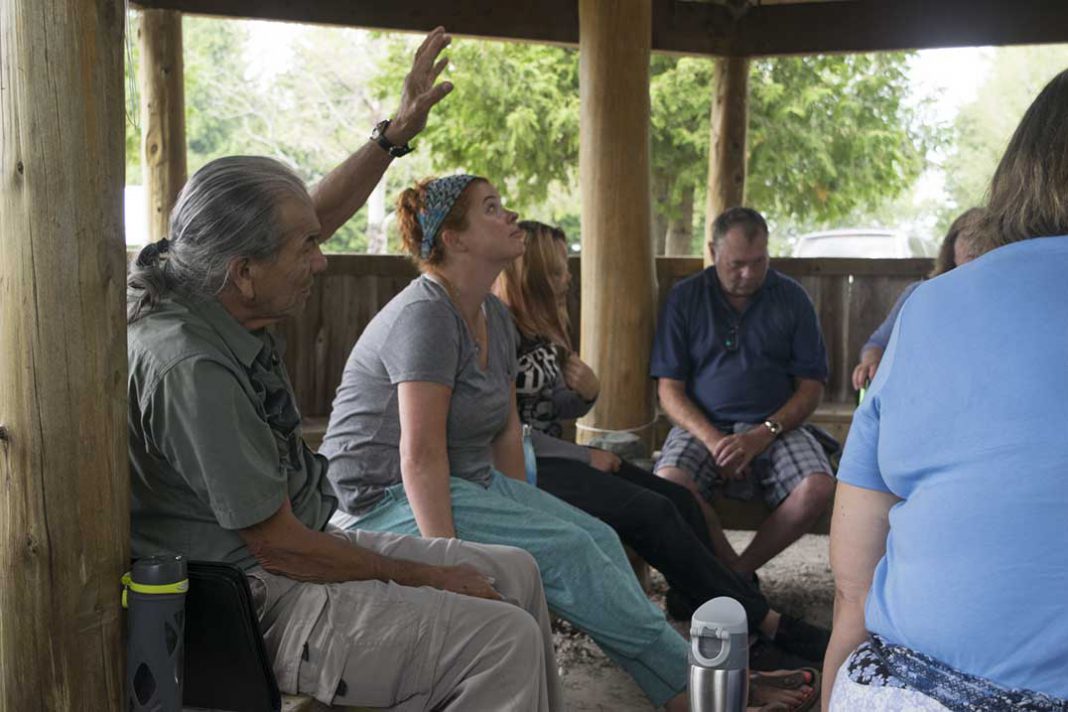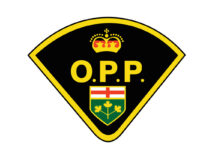AUNDECK OMNI KANING—Drum circles, charades, fire teachings and card games may not seem like natural complements, but they were all key parts of Mnaamodzawin Health Services (MHS)’ Anishnaabe Aadziiwin Language and Culture Camp, held last week for its employees.
“It’s important they have the skills to have an introductory discussion with their clients, and they have a respect for the language of the people they serve,” said Craig Abotossaway, executive director of MHS.
The camp’s intention was to enhance cultural competency when providing care within Indigenous communities. Some of the activities, such as the card games, were chosen because of their engaging and easy-to-understand nature. This introductory camp was designed to create a foundational knowledge base onto which participants could further develop their skills.
The language and culture camp also offered traditional teachings outside of the introductory language games. Attendees participated in ceremonies such as smudging and drum circles, and gained cultural knowledge through teaching lodges.
“The cultural competencies in this program link back to medicine. The learning is all about understanding the ceremonial practices that relate to healing, Indigenous health practice and how those relate back to the work they do,” said Mr. Abotossaway.

photo by Warren Schlote
Initiatives such as this camp are all part of MHS’ newly-enacted Anishinaabe Aadziiwin policy. The policy aims to ensure all staff members measurably increase both fluency and cultural competencies every year. Exact details of how fluency will be measured and what levels will be required are still being finalized.
MHS began offering weekly language classes a couple months ago for its employees to learn basic parts of speech such as greetings. This camp offered the team members a more immersive environment to reinforce and go beyond their introductory language skills.
“We were able to come together as a staff with a defined goal,” said Anna Grigull, director of care at MHS.
“It’s been a good teambuilding experience,” added Kate White, the home care team lead. The camp participants appeared to be enjoying their time together. Many of them spent their time between activities sitting with their coworkers and getting to know each other better.
Ms. Grigull said building a cultural connection is crucial during the care process. She estimates that currently, only one in four staff members are fluent in Anishinaabemowin.
“The more we’re able to engage with our own clients on a cultural level, that helps to build trust and rapport,” she said. “We come in at a vulnerable time, so anything that can build a relationship is helpful.”
Often, even if care providers are unable to carry a full conversation, the effort they make is the most important part.
“(Clients) like to see us try to speak, and then they’ll respond in an area they know we can’t reply. Then, we all start laughing and they actually teach us a bit more,” said Ms. Grigull.
“A lot of times when we try, it results in humour, and in Indigenous practices humour goes a long way,” she said.
The benefits of the immersion camp extend beyond the participating NHS employees. Their heightened cultural knowledge will help to support a better environment for their clients and the community as a whole.
“As much as young people have the ability to learn from elders, the elders can learn from young people,” said Ms. Grigull.
MHS provides health services to five First Nations in the Manitoulin area. This includes its home location in Aundeck Omni Kaning, Sheguiandah, Sheshgewaning, Whitefish River and Zhiibaahaasing First Nations.
The traditional teachings at the camp involved elders from each of its five member First Nations. Mr. Abotossaway said the camp will become an annual event to continue encouraging language and cultural knowledge development.





